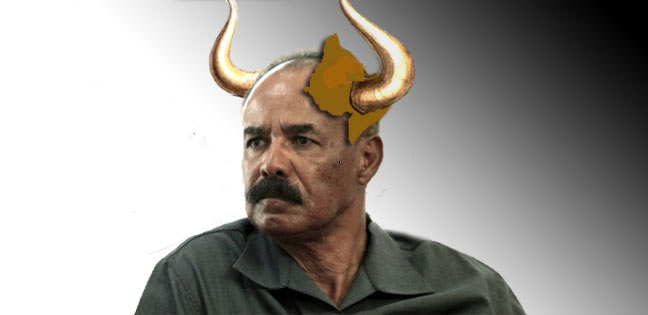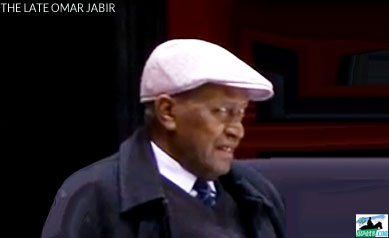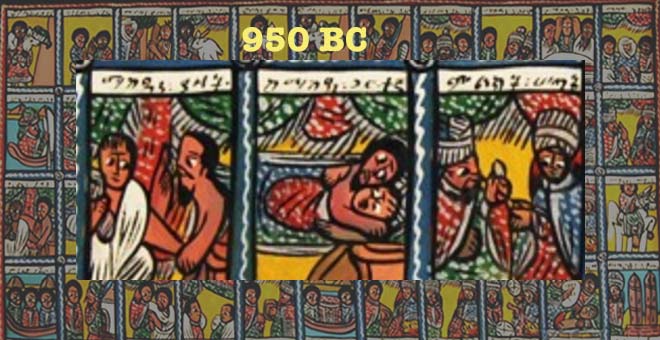Cabbages and Kings: Why the Sea is Boiling Hot (V)
In the previous parts I attempted to review the historical background that brought divergent mindsets within the Eritrean polity. Here we are at the verge of the end of phase one of our independence, and we find ourselves at odds with each other on outlooks and expectations as regards basic issues such as form of government, official language(s), land tenure and relationship with our neighbors, particularly Ethiopia, with regionalism and religious affiliations perpetuating the misunderstanding.
Let me recall two unforgettable episodes of negative mindsets I experienced in Eritrea. The first one occurred immediately after independence and regards “Addey” (my country) which kept cropping up in conversations among the visitors from abroad. I was somewhat confused by what was implied by the word and finally asked one Christian Highlander what he means by Addey. “It is where my roots are—it is my village,” was his retort. “What about Eritrea or Keren for that matter?” I asked. He dismissed my question by saying: “gdefom ezom aslam” (forget those Muslims.) That was some mindset—a product of historical confrontations—Andnet vs. Rabbita, ELF vs. EPLF. He must have gone abroad straight from the countryside.
In May of 1998, I was sitting with a group of friends at table in a restaurant when it was announced in the TV that war had broken out between Eritrea and Ethiopia. There was a moment of silence as each one of us was assessing for himself the gravity of the situation. All of a sudden a Muslim businessman stood up and ordered a bottle of Chivas Regal for every body to enjoy. We stared at him in askance, he looked around and blurted: “It is finished,” with a joyous look on his face. “The hobnobbing among the highland Christians is over.” That is another mindset from the same mould, except that the latter was educated in Egypt—a country noted for its long history of dubious attitude towards countries upstream of the Nile.
Collective Mindset and Self-governance in Eritrea
It is a fact that Eritrea was the making of external incursions: waves of migrants came from the south and from across the Red Sea, settled and made it their home forcefully or otherwise; colonialists such as Turkey, Egypt, Italy and Ethiopia ruled it in whole and in part and finally carved out its boundaries and gave it its name; and, the British and the UN undermined the will of the people and decided its fate as dictated by the real politics of the day. In time, an armed struggle evolved with the conviction that Eritreans have the right and the wherewithal to manage their own affairs. The odds against this aspiration were immense given Eritrea’s strategic location. World political powers and religious, ideological and economic giants felt, they had a stake in the country, and by and large conspired against it. The tenacity and determination of the Eritrean people and to a lesser extent other regional and international events combined for independence to be realized in 1991.
That was a landmark every Eritrean cherishes and will continue to celebrate for generations to come. However winning one’s independence is one thing and running the affairs of a state is altogether another matter. Subsequent events did show that we, including the freedom fighters, were somewhat caught by surprise in the sense that we did not do appropriate groundwork to shoulder the new responsibility. Prior to independence, the public was more focused on the achievement of independence itself. It had neither the platform nor the incentive to dwell upon what from of government should be instituted, other than the general notion that it would be a democratic exercise of sorts as outlined sketchily by ELF and EPLF cadres at various occasions. One can say however that there was at least one wishful consensus among the elite on one thing: the mistakes of other African countries were not to be repeated.
The armed group that marched into Asmara had the play field all by itself; the few dissenting individuals and groups were shrugged off without significant ado; and, the public was so caught up in a state of euphoria that it opted to give the victorious liberators the benefit of the doubt.
It is to be underlined that there was no collective mindset on how to meet the new challenge of self-governance, and the ruling regime that assumed power did not endeavor genuinely and effectively to seek a consensus, but assumed instead that it had won for itself the exclusive prerogative to run the affairs of the country, and its head has let the world know that it perpetuate the status quo for another 30-40 years.
In the early years it did accept the proposal from the expatriate Eritrean elite to present papers on different disciplines and allowed venues in Asmara for discussions on how to go about organizing the government superstructure which had to be built from scratch. Furthermore, dozens of experienced and qualified professionals did either take leave of absence or simply resigned from their respective posts abroad and volunteered to serve freely for periods of up to two years in drawing up policies, drafting laws and regulations, and training tegadelti in different departments of the government. The input from Eritrean professionals included also taking up the technical leadership for drafting of the all-important constitution, finally ratified by a constitutional assembly. That was the general picture. But in fact, nearly all non-tegadalti were looked down upon with shades of disdain, sometimes in overt contempt, and were persuaded to understand their continued presence was not welcome. No wonder many left before their 2-year commitment was due and only a few ultra loyal in the eyes of the personally cult were retained to serve in the administration.
As far as the resident population was concerned, its only political participation was to attend to local meetings organized to present progress of reports of the constitution drafting process and “elections” to endorse representatives nominated by the PFDJ to the now defunct Baito. Even there extreme care was taken to avoid involvement of independent minded personalities, which the party machinery took no time to sort out. Simultaneously, experienced civil servants and management staff of public enterprises were purged out by the end of 1994 and replaced by novices from the freedom fighters. No formal training program was carried out, and no procedures placed to ensure that the expertise and the appropriate work mindset passed on to the new administrators and clerical staff.
There was a brief moment when people had access to the free press – the only public opinion forming medium availed at the time. No sooner were the papers out on the street when the public picked them clean within no time – the people were so avid to learn the other side of the story and alternate points of view. Radio and television was and still is the exclusive domain of the regime ever spouting forth such stale clichés as “b’dho”, “social justice”, “self reliance”, “hade libi”, “CIA’s threat”, “wegenawyan”, “special interest groups”, etc. and predictions of “the bountiful harvest next year” and “the collapse of the Weyane regime within weeks” – ideas and concepts repeated ad nauseum and whose meaning and relevance was lost on the public a long time ago. No serious debate ever took place on in these media even on important themes such as the constitution, where the public had the right to listen to opposing views on burning issues such as official language(s), the flag, citizenship, etc. The day the free press was clamped down marked the end of the development of a healthy collective mindset in Eritrea.
Meanwhile, the EPLF turned PFDJ, slowly set about instituting a dictatorship which imposed a draconian rule on the people, felt all too powerful, ventured to upset its neighbors and had its fingers bitten more than once. It persisted in its roguish behavior both in domestic and regional affairs, with more mistakes abetting it to shelve the constitution indefinitely and entrench its hang on to power and commit more blunders. The nascent nation has now become a pariah state, with a government deemed a disgrace for Africa devoid of any hope for redemption. But more relevant to the subject we are trying to tackle the regime was busy on a special project of creating the “New Eritrean” briefly described as follows.
“The New Eritrean”
There is a grand project going on in that cost a lot in terms of material and human resources, and taken up the largest chunk of the President’s time and that of his lieutenants. It all amounts to what I would call debriefing a whole country. Debriefing is a word that originated in the US as a psychological prescription to treat battlefield traumatized returnees and among other things prepare them to rejoin the mainstream of civilian life. In the case of Eritrea, the reverse process was and is being imposed on the resident population. The response given to any complaint on any lack of services and shortage of essential supplies is: “humquqat (spoilt lot)! You haven’t an idea what we went through in gedli”. The regime therefore took it as its prime objective to instill discipline and perseverance upon the population and streamline the collective mindset of the population to its terms at whatever cost. Hence, the president’s declaration that there will be no talk of democracy or elections for the next 30-40 years.
Convinced of the incorrigibility of the adult generation, the regime has focused its effort on the young including volunteers from the Diaspora. Its epitome is the Sawa military camp, a remote outpost in the northwestern lowlands, now booming with all sorts of activities and an exclusive Mecca for the faithful of the personality cult.
It all started with the rounding up of street urchin – orphaned children victimized by the prolonged war. The public was relieved of their nuisance and everybody thought they were taken to some orphanage or correction centers. But it was soon to evolve into a grand plan – to shape up the future Eritrean – a new Eritrean fashioned in Spartan discipline and dedicated to the “Isaias vision”, a vaguely defined vision often referred to by the insiders of the regime. The time-tested institutions of higher learning including the Asmara University were deemed breeding grounds of undesirable elements and replaced by training camps run by army colonels…
It is not an altogether new idea. It is derived from the early soviet experiments to create the new “soviet man”. Believing that human nature could be tuned to the communist sets of values, children were taken away from their parents and reared to be the future inheritors and leaders of the communist dream. It failed there, and as night follows the day, mistakes committed by others had to be repeated in Eritrea.
As for the tegadelti themselves, may be for the lack of debriefing, they have introduced a culture of blatant corruption into the administrative fabric which will take decades to root out, if ever. The animosity among its officers, often abetted by their commander-in-chief, accompanied by uncontrolled greed has led mafia style shoot-outs; and their private earnings in hard currency have swelled from human and material trafficking at border crossings. Sad is the story of countless maidens coming out of Sawa and other military barracks with illegally conceived babies.
Phase one of independent Eritrea is doomed to come to a close, hopefully in a peaceable manner. The worst legacy of the current regime is a nation divided among itself along the lines of regionalism and religion. If these problems are to be faced squarely and a harmonious society is to evolve, there is a need to construct a collective mindset enabling a united resolve to demonstrate that Eritreans can forge a viable nation, a nation ever ready to accommodate equitably its citizens irrespective of their ethnic, religious or political affiliation.
In Part-V deals with some important elements of the desired collective mindset and I hope this series shall come to a close within the week. But I promise I will not slumber voluntarily any more. Osman Omar-Ali has done a very good job at Ethno-Tribal Politics, Religion, And Democracy . I only hope he will give up his hibernation – there are so many loose ends requiring his expertise.




Awate Forum